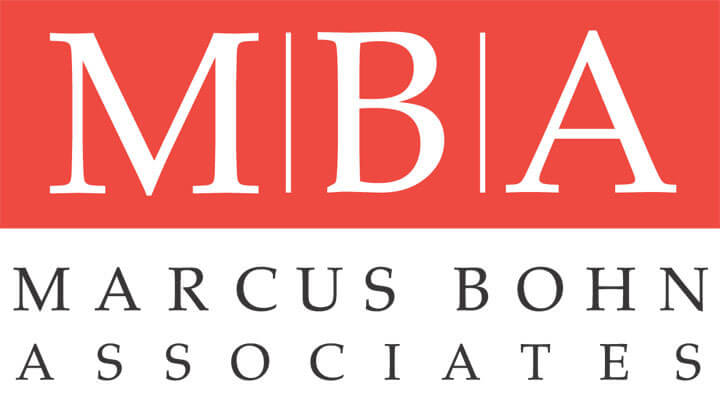What are Soft Skills?
‘Soft Skills’ are non-technical skills relating to how you interact with others, build relationships, solve problems and manage your work. Soft Skills are needed in every role and life in general but are especially important in customer service, sales and leadership roles.
‘Hard Skills’ such as technical expertise, product and subject knowledge and specific qualifications are essential in the workplace, but how can ‘Soft Skills’ also improve performance?
High performing people tend to have learnt the discipline to structure their working day and be highly effective within that time period which is important both in the workplace and increasingly critical with hybrid and remote working. But others can learn these skills too to be more successful and effective.
Having certain personal characteristics and behaviours can make leaders and team members stronger and more effective at their job, have good interpersonal relationships in the workplace, and life in general. These can also be called ‘people skills’ – interpersonal skills which allow you to build relationships and communicate well with others and behaviours you use daily to interact and get along with people creating positive working relationships.
So, what are the most desirable skills?
10 Essential Soft Skills
- Communication
- Active Listening
- Teamwork/Team Player
- Problem Solving
- Adaptability
- Critical Thinking
- Time Management
- Motivation
- Conflict Management/Resolution
- Emotional Intelligence
1. Communication
Having great communication skills is essential in the workplace for working efficiently and effectively, whether you are interacting with team members, clients or customers. Communication is important for building rapport. Strong communicators are proficient in both verbal and written communication, understand non-verbal cues, know their audience, stick to the point, use clear and concise language and are empathetic. Body language and tone of voice are also important when communicating effectively.
2. Active Listening
Listening actively is different to just hearing words, it means that you understand and pay close attention to what is being said and respond accordingly and ask clarifying questions, rather than just waiting to say your own piece. You hear what was said the first time rather than asking for something to be repeated. Active listeners are respectful and more effective in the workplace.
3. Teamwork/Team Player
Teamwork is a critical skill; effective teams are more productive, meet deadlines, have stronger relationships, sharing knowledge and skills to achieve common goals and support the strengths of others. Strong teams keep their team objectives in mind while understanding individual responsibilities, are supportive, positive and communicate regularly.
4. Problem Solving
Someone that is an effective problem solver is a valuable member of the team, they can identify the problem being faced, research the situation and brainstorm possible situations to work towards the best solution and a successful outcome.
5. Adaptability
Being able to adapt quickly and successfully to change and cope in a positive way is a core skill. Keeping an open mind, understanding and looking for opportunities in the change and plan how to adopt or perform differently as a result of the change will enable you to focus on the positives be you’ll be more willing to step outside of your comfort zone. Change is inevitable in a constantly evolving business world, being adaptable and trying out new strategies will help you thrive.
6. Critical Thinking
Critical thinking skills are valuable in the workplace as they allow you to effectively analyse information and make an informed decision, form a successful plan, perform efficiently, take advantage of opportunities and always respond rationally to situations and challenges.
7. Time Management
Effective time management helps you take control of your day, reducing the stress of not prioritising tasks enabling you to allocate your time productively. Good Time Management enables you to achieve your most important and urgent tasks within deadlines, plan ahead more effectively, control interruptions and deal with the unexpected and remain flexible when priorities change.
8. Motivation
Self-motivation is the ability to drive yourself and take initiative to do what needs to be done without influence from other people or situations, encouraging yourself to achieve goals and complete tasks, even when it feels challenging. Displaying high levels of self-motivation with the workplace becomes noticeable that you’re achieving goals and working hard to succeed.
9. Conflict Management
Workplace conflict and disagreements can be settled quickly and effectively with good conflict management skills. Knowing how to spot and deal with conflict with assertiveness and being able to deal with aggression will help improve relationships.
10. Emotional Intelligence
This is the ability to recognise and manage your emotions and the emotions of others using self-awareness, self-regulation, motivation, empathy and social skill. Being able to regulate emotions in the workplace, build rapport and positive relationships and empathise with others and giving and receiving constructive feedback is one of the most important soft skills.
Other Soft Skills that are useful to have:
- Reliability/Dependability
- Leadership
- Positivity
- Compromise
- Creative Thinking
- Work Ethic
- Growth Mindset
- Being Open to Feedback
- Good Organisation
- Being able to Prioritise
How Do Soft Skills Benefit the Business?
Soft skills are particularly important in customer-based situations where you are in direct contact with customers and providing a service, being able to listen, be helpful and polite. Many areas of work are becoming automated but there will always be a demand for people who can solve problems, manage many responsibilities and work well with others.
With more people working remotely it is becoming more important to be able to communicate effectively, especially if you are not face-to-face. Communication skills, teamwork, and adaptability enable you to connect with co-workers, express your ideas and receive feedback.
How to Develop and Improve Soft Skills
Soft skills can be learnt, for example, to improve creative thinking or problem-solving try brainstorming with other team members; if you need to improve listening skills try listening carefully to colleagues and ask for clarification if needed. Once you’ve identified the soft skills you need to work on there are online courses, video tutorials, reading material and podcasts to help you hone your skills. Look for opportunities to practice these skills in the workplace, for example if you’re discussing a problem suggest solutions rather than waiting for them to provide one; if a colleague is struggling with a task offer to help them; if you see a process that could be improved in the workplace, make a suggestion.
Benefits of Soft Skills Training
Soft skills training can be more challenging as it involves teaching new behaviours and ways of thinking. It can help employees to understand their strengths and weaknesses within a team and learn how to best communicate with others for the best outcome. It is training that focuses on developing skills such as communication, teamwork and problem solving.
The key benefits of soft skills training include: Improved teamwork and rapport; Empathetic leadership; happier employees and better staff retention; better customer service and client satisfaction and enhanced problem-solving amongst others
Some Marcus Bohn Courses to Improve Soft Skills:
- Time Management & Personal Effectiveness
- Developing Resilience for Peak Performance
- From Good to Great Team Customer Service
- Written Communication Skills
- Assertive Communication
- Telephone Selling Skills
- Handling Difficult People and Situations


